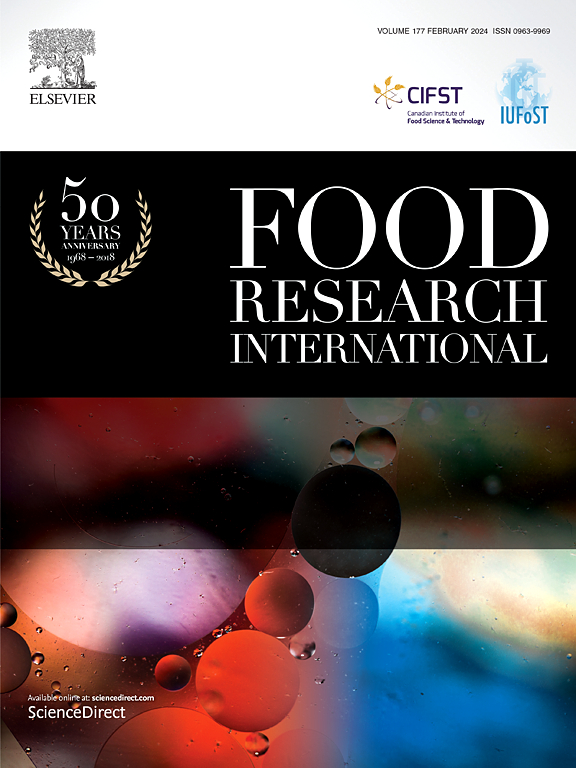Exploring new plant-based products: Acceptance of sunflower meal as a protein source in meat alternative products
IF 7
1区 农林科学
Q1 FOOD SCIENCE & TECHNOLOGY
引用次数: 0
Abstract
In response to growing consumer demand for sustainable and plant-based food options, sunflower meal, a byproduct of oil extraction, emerges as a promising protein source. This study explores the potential of sunflower semi-defatted meal to create meat alternative mixes (MAMs) with a balanced nutritional profile and desirable sensory attributes. Two MAM formulations were developed: one incorporating toasted sunflower kernels (MAMk) and the other utilizing texturized protein sunflower (MAMt). Both formulations were enriched with tomato powder, spices, and a lipid matrix comprising sunflower, olive, and linseed oils. The doughs were shaped into mini-burger format and baked. Sensory evaluation revealed a preference for the MAMt formulation, which exhibited superior texture. Physical-chemical analysis confirmed MAMt's nutritional value, highlighting its high lipid (38.15 %) particularly monounsaturated fatty acids (41.98 % of the total lipid composition) and protein (20.10 %) content all essential amino acids (lysine limiting amino acid with 0.8 score). Moreover, MAMt demonstrated significant mineral content, especially iron, zinc, magnesium, and manganese (49 %, 68 %, 95 % and 89 %, respectivally, regarding recommended daily intake). While further refinement is necessary to optimize flavor, the study underscores the potential of sunflower meal to contribute to a more sustainable food system and provide consumers with a nutritious and appealing plant-based protein alternative.

求助全文
约1分钟内获得全文
求助全文
来源期刊

Food Research International
工程技术-食品科技
CiteScore
12.50
自引率
7.40%
发文量
1183
审稿时长
79 days
期刊介绍:
Food Research International serves as a rapid dissemination platform for significant and impactful research in food science, technology, engineering, and nutrition. The journal focuses on publishing novel, high-quality, and high-impact review papers, original research papers, and letters to the editors across various disciplines in the science and technology of food. Additionally, it follows a policy of publishing special issues on topical and emergent subjects in food research or related areas. Selected, peer-reviewed papers from scientific meetings, workshops, and conferences on the science, technology, and engineering of foods are also featured in special issues.
 求助内容:
求助内容: 应助结果提醒方式:
应助结果提醒方式:


